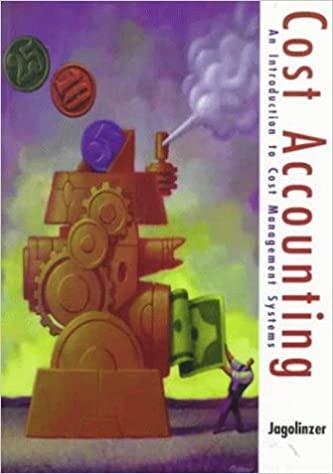Answered step by step
Verified Expert Solution
Question
1 Approved Answer
Monet Brothers is a leading Califomia wine producer. The firm was founded in 1 9 4 8 by Charles Monet, an army veteran who had
Monet Brothers is a leading Califomia wine producer. The firm was founded in by Charles Monet, an army veteran who had spent several years in France both before and after World War Il and who was convinced that California could produce wines that were as good as or better than the best France had to offer.
Originally, Monet sold his wine to wholesalers for distribution under their brand names, but in the early s when wine sales were expanding rapidly, he joined with his brother Raymond and several other producers to form Monet Brothers, which then began an aggressive promotion campaign. Today, its wines are sold throughout the United States.
Monet's management is currently evaluating a potential new product; a light, fruity wine designed to appeal to the younger generation. The new product, California Gold, would be positioned between the various wine coolers and the traditional wines. The new product would cost more than wine coolers, but less than premium table wine, and in market research samplings at the company's Napa Valley headquarters, it was judged superior to various competing products. Jean Resce, the financial vice president, must analyze this project, along with two other potential investments, and then present her findings to the company's executive committee.
Production facilities for the new wine product would be set up in an unused section of Monet's main plant. Relatively inexpensive, used machinery with an estimated cost of only $ would be purchased, but shipping costs to move the machinery to Monet's plant would total $ and installation charges would add another $ to the total equipment cost. Further, Monet's inventories the new product requires some aging at the winery would have to be increased by $ and this cash flow is assumed to occur at the time of the initial investment. The machinery has a remaining economic life of years, and the company has obtained a special tar ruling that allows it to depreciate the equipment under the MACRS year class life. Under current tax law, the depreciation allowances are and in Years through respectively. The machinery is expected to have a salvage value of $ after years of use.
The section of the plant in which production would occur had not been used for several years, and consequently had suffered some deterioration. Last year, as part of a routine facilities improvement program, Monet spent $ to rehabilitate that section of the main plant. Dan Smith, the chief accountant, believes that this oullay, which has already been paid and expensed for lax purposes, should be charged to the wine project. His contention is that if the rehabilitation had not taken place, the firm would have had to spend the $to make the site suitable for the wine project
Monet's management expects to sell bottles of the new wine product in each of the next years, at a wholesale price of $ per bottle, but $ per bottle would be needed to cover fixed and variable cash operating costs. In examining the sales figures, Resce noted a short memo from Monet's sales manager which expressed concern that the wine project would cut into the firm's sales of wine coolersthis type of effect is called an externality. Specically the sales manager estimated that wine cooler sales would fall by percent if the new wine were introduced. Resce then talked to both the sales and production managers, and she concluded that the new project would probably lower the firm's wine. cooler sales by $ per year, but, at the same time, it would also reduce production costsfor this product by $ per year, all on a pretax basis.Thus, the net externality effect would be $ $$ Monet's federalplusstate tar rate is percent, and its overall cost of capital is percent, calculated as Olows
WACC W k I wk
:
Estimate Annual Cash Flows
Calculate NPV IRR, and Payback.
Step by Step Solution
There are 3 Steps involved in it
Step: 1

Get Instant Access to Expert-Tailored Solutions
See step-by-step solutions with expert insights and AI powered tools for academic success
Step: 2

Step: 3

Ace Your Homework with AI
Get the answers you need in no time with our AI-driven, step-by-step assistance
Get Started


